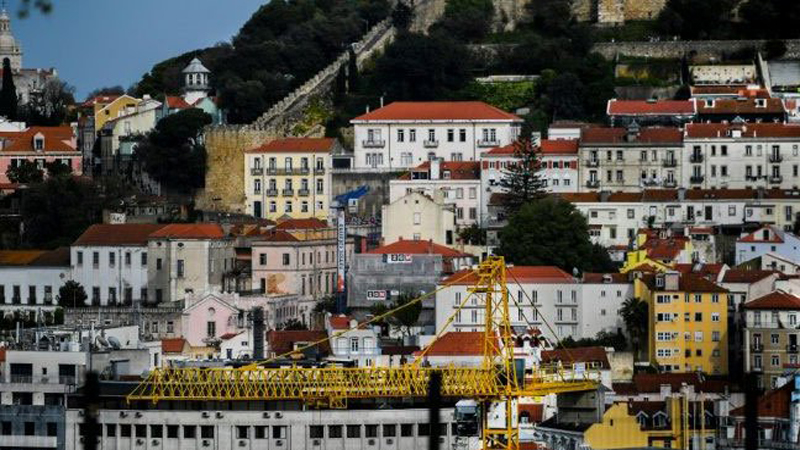 With Lisbon steeped in kitsch and glam as it prepares to host this year’s grand finale of Eurovision, officials are hoping the pop fest will draw even more tourists to the Portuguese capital
With Lisbon steeped in kitsch and glam as it prepares to host this year’s grand finale of Eurovision, officials are hoping the pop fest will draw even more tourists to the Portuguese capital
Locals here know their country’s economy depends heavily on tourism, but they also fear Lisbon may not be able to handle the huge influx of visitors already pouring in.
Officials expect Saturday’s final of the annual musical spectacle to draw some 30,000 foreign visitors to the city.
In the lead-up to the event, Lisbon city hall has been staging free nightly concerts at the so-called Eurovision Village set up in the riverside Praca do Commercio in the heart of the city, complete with reclining seats, cocktail bars and food trucks.
Local authorities are meanwhile working to use Lisbon’s moment in the Eurovision spotlight to showcase the city’s charms and lure more visitors for the years to come. “This will be a great additional calling card for the city,” Lisbon mayor Fernando Medina told reporters last week as he explained the decision to spend 5.0 million euros ($6.0 million) to stage Eurovision.
“We can never have too many people getting to know us,” he added when asked whether the city, which has seen a surge in visitor numbers in recent years, really needed any more tourism.
‘Discover Lisbon’
Portuguese state broadcaster RTP, which is organising the show, asked each of the finalists to record a 40-second video of themselves enjoying Portugal’s sights.
The videos, dubbed “postcards” from Lisbon, will be broadcast during the final, which is watched by many millions of people around the world.
Montenegro’s contestant Vanja Radovanovic taped his “postcard” at Lisbon’s Feira da Ladra flea market, while Belarusian singer Alekseev recorded his on top of the 19th century Rua Augusta Arch which offers sweeping views of the Tagus river.
“Five hundred years ago we discovered the world from Lisbon and it is time for the world to discover Lisbon,” said Eurovision executive producer Joao Nuno Nogueira.
He was referring to the 15th century sea voyages to the Americas, when Portugal was a leading maritime nation.
It appears Eurovision has already reaped some benefits for Lisbon’s tourism industry. British online agency Travel Republic says bookings to the city jumped 27 percent in the month after Portugal won last year’s Eurovision song contest in Kiev in May 2017.
‘Enormous pressure’
Long overlooked by visitors who favoured Portugal’s southern Algarve region, Lisbon is attracting more tourists thanks to its ambitious marketing campaigns, relatively low prices and a growing cruise-ship port.
The number of overnight foreign guests in Lisbon jumped to around 11 million last year from around six million in 2010, official data shows.
While local residents welcome the economic boost that visitors bring, many complain the city is not doing enough to deal with the ensuing strain on public services such as garbage collection and public transport. “When the city invites more people, it has to face up to this enormous pressure,” said Isabel Sa da Bandeira.
She heads a neighbourhood association in Cais do Sodre in central Lisbon called Aqui Mora Gente, meaning “People Live Here”, which lobbies against the noise and garbage generated by fun-lovers drawn to the area’s lively bars and nightclubs.
Lisbon city hall expects its investment in Eurovision to generate around 25 million euros in direct revenues for hotels, restaurants and other local businesses. But Carlos Moura, a Communist Lisbon city councillor, told the Lusa news agency it was “completely absurd” that the city used money from a tourism fund for Eurovision. That fund, he said, had been “set up precisely to tackle the issues raised by the use of city services by tourists”.
Published in Daily Times, May 10th 2018.